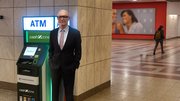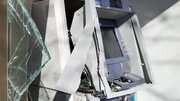Article
Iowa injunction
In another decision favoring the National Bank Act over state law, the Eighth Circuit Court of Appeals ruled that ATMs deployed by Bank One in Iowa were not subject to state regulation.by Ann All, editor
March 11, 2002
Feds: 1, States: 0.
That's the score in Iowa, after a federal appeals court issued a strongly-worded opinion in favor of Bank One, which had sued for the right to deploy ATMs at retail locations in the state.
Bank One had installed machines at a handful of Sears stores in 1997 as part of its Rapid Cash program. The state filed an action against Sears, citing a statute from its Electronic Funds Transfer Act that prevents out-of-state banks from placing ATMs. Bank One then removed the machines and took Iowa to court, contending that the National Bank Act preempted state law.
Bank One suffered a setback when a U.S. district court judge ruled against the company in Des Moines last year. It fared much better on appeal, however. Although it had sought only a preliminary injunction, a three-member panel of the U.S. Court of Appeals for the Eighth Circuit in St. Louis last week issued a permanent injunction preventing Iowa from enforcing its statute. The court also struck down a state ban on advertising at off-site ATMs.
In the majority opinion written by Chief Judge Roger L. Wollman, the court stated: "Congress has made clear in (the National Bank Act) its intent that ATMs are not to be subject to state regulation, and thus the provisions of the Iowa EFT Act that would prevent or significantly interfere with Bank One's placement and operation of its ATMs must be held to be preempted."
| "Congress has made clear in (the National Bank Act) its intent that ATMs are not to be subject to state regulation...." Roger L. Wollman, chief judge of the U.S. Court of Appeals for the Eighth District |
The court focused on a 1996 amendment to the act, which removed ATMs from the definition of a bank branch. According to the opinion: "Thus, whatever regulatory authority the states may retain with respect to national bank branches, the 1996 amendment clearly expresses Congress's intent that the authority no longer extends to national bank ATMs."
In a terse written statement, Iowa Superintendent of Banking Michael Guttau and state Attorney General Tom Miller responded: "We are disappointed that the majority of the court chose to rely only upon a technical legal issue, leaving unaddressed the issue of public harm. The majority of the court felt it was not necessary to consider the public harm caused by Bank One's position."
Touching on the issue of "public harm," dissenting Judge Myron H. Bright wrote in his opinion: "Protection of the consumer is well within the power of the states to render and is not preempted by federal law."
The possibility of an appeal is apparently still pending. According to Guttau's and Miller's statement: "We are reviewing the court's decision, and a determination will be made soon by the state of Iowa whether to appeal the decision."
Bank One spokesperson Robin Yocum said, "The decision vindicates our opinion that a national bank should be free to deploy ATMs in Iowa -- or in any state -- without having a branch there."
John Sorensen, president of the Iowa Bankers Association, called the court's action "disappointing, especially coming on the heels of the federal district court decision which seemed to go a long way in preserving states' rights."
The Iowa Bankers, along with the Iowa Independent Bankers Association and the Iowa Credit Union League, had filed legal briefs in support of the state's position.
Sorensen said many financial institutions in Iowa agree that state law, with its pro consumer slant, has served its residents well. He noted that there is an "abundance" of ATMs, despite the fact that Iowa is largely a rural state.
"The universal access issue is one that's been at the forefront of our EFT laws," he said. "We've really been pioneers in the mass placement of ATMs with equal access for every consumer. ATMs have generally been perceived as more of a customer service than a profit center."
| "The universal access issue is one that's been at the forefront of our EFT laws." John Sorensen, president of the Iowa Bankers Association |
Because of the state's demographics, Sorensen doesn't expect to see a rush of new deployment by out-of-state banks. "I think for those institutions who have agreements with retailers, that's more likely where you'll see it show up," he said.
Yocum said that while "it's pretty early in the game," Bank One may look at deploying more machines in Iowa. "We're certainly going to consider our options."
Jim Hayes, executive vice president and general counsel of Cash Station, said his company was encouraged by the language in the court's interpretation. "Essentially they're saying that if a state law gets in the way of a national bank's ATM operations, it's preempted."
Cash Station had filed a brief in support of Bank One, along with the Office of the Comptroller of the Currency, the Consumer Bankers Association and five banks. The Chicago-based EFT network hopes another Iowa statute, which requires processors and financial institutions to route all transactions through a central network, also may be considered invalid. The only network that has the required state approval is Johnston, Iowa-based Shazam.
Hayes insists that Iowa's EFT Act is not intended to protect consumers, despite the state's arguments to the contrary in court. "It's not a pro-consumer act. It's a pro Shazam, pro-business, pro-Iowa bank act that is intended to prevent large banks from exercising choice."
Shazam is a "statutory monopoly," Hayes added. He noted that Cash Station is working with several large national banks "who have been dissatisfied with Shazam and all of the chains that Iowa's statutes and Shazam's rules throw around them."
Among the banks that filed briefs on behalf of Bank One are NationsBank, Norwest, U.S. Bancorp and Firstar.
Rick Jenkins, Shazam senior vice president and corporate counsel, agreed that the court's strong support of the National Bank Act may lead to challenges of other statutes. "Based upon a broad interpretation of the ruling, there may be those who say that even though other statutes of Iowa's EFT law were not at issue in the case, so goes the same theory."
Jenkins said the Iowa statutes concerning a central network, commonly called "anti stacking provisions," were created to guarantee "universal, non-discriminatory access for all Iowa cardholders at POS terminals and ATMs deployed within the state."
Because Shazam has connections to all issuers, "that assures that transactions can be completed" in Iowa, Jenkins said. That's in contrast to other states, which he said have "a very fragmented system, particularly at online POS terminals."
He added, "If a financial institution deploys terminals driven by another network in Iowa and they don't have connectivity with Shazam, they don't really have a way to gain authorization, particularly for online POS debit transactions."
Jenkins was encouraged by Judge Myron Bright's apparent concern for consumers in his dissenting opinion. "He's essentially saying 'let's not go too far.' Several EFT laws in Iowa are not oriented toward the geographic issue of deployment. At least in the dissenting opinion, he believes those should be retained and be enforceable."
In awarding regulatory authority to the OCC, the Iowa decision mirrors a recent ruling in Connecticut that prevents that state from enforcing a cease and desist order preventing banks from imposing ATM surcharges.
In the Connecticut case, however, a federal district court judge did not specifically address the banking commissioner's interpretation that surcharges are not allowed under state law. Instead, the ruling gave the OCC the authority to enforce Connecticut laws against national banks.
After the U.S. Supreme Court rejected hearing arguments in that case in June, the Connecticut Attorney General's office and the banks involved agreed to move the matter to the state Supreme Court. A decision is still pending.













